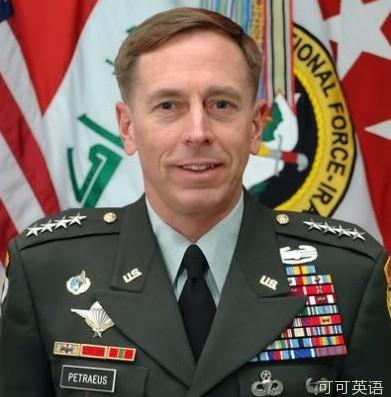JUDY WOODRUFF:And we turn to the very sudden resignation from the man at the top of the CIA, retired Army General David Petraeus.
Ray Suarez has that story.
RAY SUAREZ:The stunning news came just 14 months after Petraeus was sworn in as CIA director, his wife, Holly, at his side.
Today, Petraeus announced his resignation in a statement to the agency's employees, saying:
"After being married for over 37 years, I showed extremely poor judgment by engaging in an extramarital affair. Such behavior is unacceptable, both as a husband and as the leader of an organization such as ours."
The retired four-star general said he went to the White House yesterday, met with President Obama, and asked to resign for personal reasons.
The president made no mention of the matter at his own White House event today, and Press Secretary Jay Carney declined to comment.

JAY CARNEY, White House: The president has — believes that General Petraeus is doing and has done an excellent job. But I have no personnel announcements to make from here today.
RAY SUAREZ:Later, the president confirmed in a statement that he'd accepted the resignation.
He said:
"David Petraeus has provided extraordinary service to the United States for decades. By any measure, he was one of the outstanding general officers of his generation."
Petraeus served more than three decades in the Army, but his rise to prominence came in the post-9/11 wars.
In early 2007, he was placed in charge of all coalition forces in Iraq. And in 2010, he took over as commander of U.S. forces in Afghanistan, overseeing the push to reverse Taliban gains.
Along the way, he warned of tough going, as in this testimony at a hearing in March of 2011.
DAVID PETRAEUS, CIA: The momentum achieved by the Taliban in Afghanistan since 2005 has been arrested in much of the country and reversed in a number of important areas. However, while the security progress achieved over the past year is significant, it is also fragile and reversible.
RAY SUAREZ:Petraeus' resignation from the CIA today leaves his deputy, Michael Morell, as acting director.
For more, we turn to Greg Miller. He covers intelligence for The Washington Post.
And retired Army Colonel Peter Mansoor, he was executive officer for General Petraeus during the surge of forces in Iraq in 2007 and 2008. He's now a professor at OhioStateUniversity.
Greg Miller, attention, according to many news reports, is focusing on General Petraeus's biographer and the fact that the general came to the FBI's attention during an investigation. What can you tell us?
GREG MILLER, The Washington Post: Yes, we're hearing that too.
I want to stress that this is very early in the story. So a lot of information is—it's hard to nail down at this point.
But we're being told that, yes, this is not necessarily a case of the general, the former general stepping up, doing the right thing, and admitting to an affair, but being flushed out, being forced to admit it because of an FBI investigation into e-mail access of the director's e-mail.
RAY SUAREZ:E-mail access by the woman in question, Paula Broadwell, the author of "All In"?












